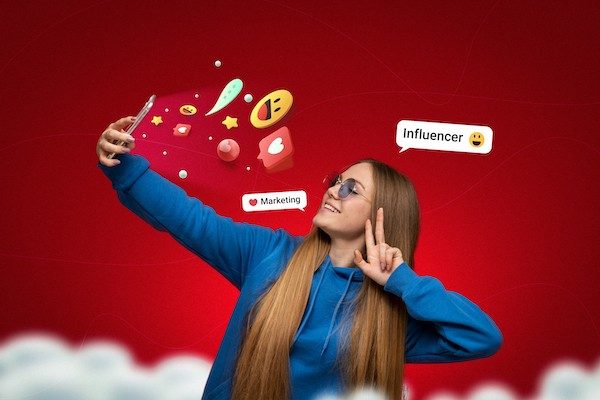In the rapidly evolving landscape of digital marketing, one phenomenon is capturing the attention of marketers around the world: AI generated influencers. As technology advances, these virtual personalities are becoming increasingly sophisticated, blurring the lines between human and artificial influence. But what exactly are AI generated influencers, and how are they reshaping the marketing world?

Understanding AI Generated Influencers
AI generated influencers are virtual personalities created using artificial intelligence. These influencers can mimic human behaviors, appearance, and interactions, making them convincing entities on social media platforms. With the ability to engage with audiences and promote brands, they are becoming a powerful tool in the arsenal of marketers.
The Rise of Virtual Influencers
The concept of virtual influencers is not entirely new, but recent advancements in AI have propelled their popularity. Companies are now leveraging AI to create influencers that are not only visually appealing but also capable of interacting with followers in a manner that feels authentic. This rise is largely due to the increasing demand for innovative marketing strategies that capture the attention of tech-savvy audiences.
Why Marketers are Turning to AI
The allure of AI generated influencers lies in their versatility and control. Unlike human influencers, virtual ones can be tailored precisely to fit a brand’s image and message. They can work around the clock without the constraints of human limitations, offering endless possibilities for engagement.
The Benefits of Using Virtual Influencers
One of the main advantages of using AI generated influencers is the ability to avoid controversies that often accompany human influencers. Virtual influencers don’t have personal opinions or unpredictable behaviors, making them a safer choice for brands concerned about maintaining a clean image.
Challenges and Considerations
Despite their benefits, AI generated influencers are not without challenges. One of the primary concerns is authenticity. Audiences may struggle to connect with virtual personalities on a personal level, which can impact engagement rates. Additionally, ethical questions arise regarding transparency and the potential manipulation of audiences.
Balancing Creativity and Authenticity
For marketers, the challenge lies in striking the right balance between creativity and authenticity. While AI offers incredible creative potential, maintaining a sense of genuine connection with audiences is crucial for long-term success.
Addressing Ethical Concerns
As the use of AI generated influencers grows, so does the importance of addressing ethical considerations. Transparency about the nature of these influencers is essential to maintain trust with consumers.
The Future of Influencer Marketing
The future of influencer marketing is likely to be a blend of human and virtual influencers. As technology continues to advance, the line between the two will blur further, offering exciting opportunities for marketers to innovate and engage with audiences in new ways.
Integrating AI with Traditional Strategies
Rather than replacing human influencers, AI generated influencers can complement traditional marketing strategies. By integrating both, brands can harness the unique strengths of each to create comprehensive campaigns.
The Role of AI in Consumer Engagement
AI generated influencers can play a significant role in enhancing consumer engagement. By using data-driven insights, these virtual personalities can provide personalized experiences that resonate with individual preferences.
Case Studies of Successful AI Influencers
Several brands have already successfully implemented AI generated influencers in their campaigns. These case studies offer valuable insights into the potential and pitfalls of using virtual influencers in marketing.
Case Study 1: Virtual Fashion Icons
One notable example is the use of virtual influencers in the fashion industry. Brands are creating digital fashion icons that showcase new collections, reaching audiences worldwide without the constraints of traditional photoshoots.
Case Study 2: AI in the Beauty Industry
The beauty industry is also embracing AI generated influencers. Virtual beauty gurus can demo products and provide tutorials, offering a fresh way to engage with beauty enthusiasts.
Case Study 3: Gaming and Entertainment
In the gaming and entertainment sectors, virtual influencers are creating immersive experiences. These AI personalities can interact with gamers and fans, providing a unique form of engagement that extends beyond traditional marketing.
Conclusion: Embracing the Future
As the digital landscape continues to evolve, AI generated influencers are poised to play a pivotal role in shaping the future of marketing. By understanding their potential and limitations, marketers can leverage these virtual personalities to create impactful campaigns that resonate with today’s audiences.
Looking Ahead
The journey of AI generated influencers is just beginning. With ongoing advancements in technology, the possibilities are endless. As marketers, embracing these innovations and adapting to the changing landscape will be key to staying ahead in the competitive world of digital marketing.

FAQs about AI Generated Influencers
What are AI generated influencers?
AI generated influencers are virtual personalities created using artificial intelligence to mimic human behaviors and interactions on social media platforms.
How can businesses benefit from virtual influencers?
Businesses can benefit from virtual influencers by leveraging their versatility and control, avoiding controversies, and engaging with tech-savvy audiences in innovative ways.
Are there any ethical concerns with using AI influencers?
Yes, there are ethical concerns regarding transparency, authenticity, and the potential manipulation of audiences when using AI generated influencers.
Learn more about influencer marketing Future of marketing Importance of influencers Influencer marketing examples Snapchat marketing







